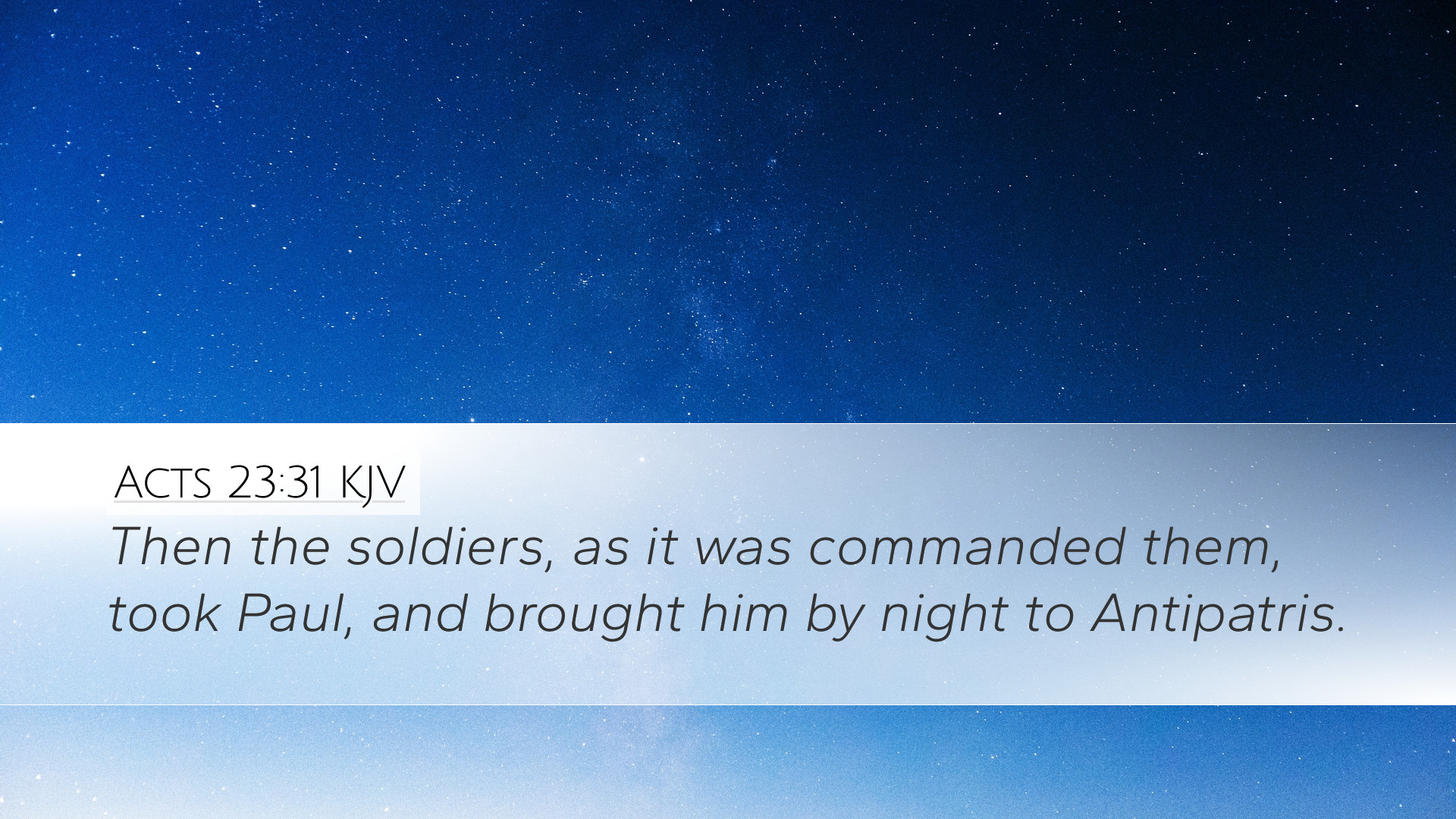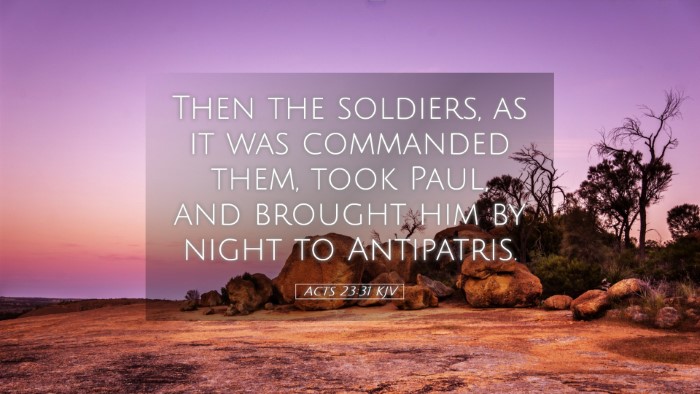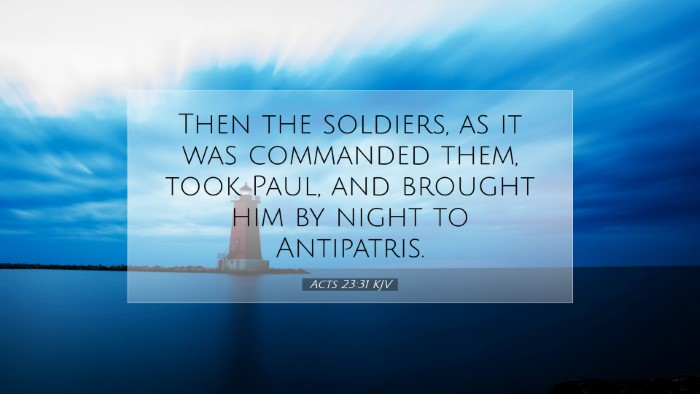Commentary on Acts 23:31
Verse: "Then the soldiers, as it was commanded them, took Paul and brought him by night to Antipatris."
Introduction
The context of Acts 23:31 is pivotal in understanding the transition of the Apostle Paul from Jerusalem to Caesarea, where he would face trial against accusations levied by the Jewish leaders. This passage reflects the providential care of God over Paul amidst perilous circumstances, portraying themes of divine protection, the fulfillment of God's purpose, and the role of civil government in the promotion of justice.
Overview of Public Domain Commentaries
Commentaries by Matthew Henry, Albert Barnes, and Adam Clarke provide insightful observations on this verse. Each offers a perspective on the political and spiritual dimensions involved in this moment of Paul’s journey. Their analyses highlight both the immediate implications for Paul and broader theological lessons for believers.
Matthew Henry's Insight
Matthew Henry emphasizes the obedience of the soldiers carrying out their orders. He points out the contrast between the fear and tumult in Jerusalem and the calm and orderly transfer of Paul to Antipatris. This obedience serves not merely as military protocol but as an illustrative lesson of God’s sovereignty working through natural means.
- Divine Protection: Henry notes how the Lord’s hand was upon Paul. Despite the conspiracy against him, God orchestrated events to ensure his safety, reminding us that believers are under God's protection in their trials.
- Role of Authority: The behavior of the soldiers demonstrates how civil authorities can serve God’s purposes, albeit often unknowingly. Henry reinforces that God can use any vessel, including secular powers, to fulfill His will.
Albert Barnes' Perspective
Albert Barnes provides a detailed exegesis of the geographical and historical backdrop of Paul's transport. He highlights that Antipatris served as a garrison town, strategically positioned for the transfer of prisoners.
- Historical Significance: Barnes notes that this move was both strategic and symbolic, illustrating the protection afforded to Paul while also noting the religious tensions of the time.
- Fulfillment of Prophecies: He points to how this transfer fulfills God’s plan, showing how Paul would ultimately go to Rome, thereby spreading the Gospel further as prophesied.
Adam Clarke's Commentary
Adam Clarke offers a theological reflection on the significance of night travel and its implications for those who bear the light of the Gospel amidst darkness. Clarke often illuminates the metaphorical understanding of light and darkness in Christian living.
- Symbolism of Night: Clarke interprets the darkness of the night as indicative of the spiritual state of the Jewish leaders who sought Paul’s life, contrasting it with Paul’s mission of bringing light to the Gentiles.
- Remark on Antipatris: He remarks on the name 'Antipatris' meaning 'against the father', which he sees as a subtle nod to the conflict of earthly fathers against divine will, emphasizing the central theme of the Father’s sovereignty over human affairs.
Theological Reflections
Across these commentaries, several theological reflections emerge that are meaningful for pastors, students, theologians, and scholars alike:
- God’s Sovereignty: The preventions against Paul illuminate God's control over human events. Paul’s journey reflects a divine orchestration that emphasizes a larger narrative of salvation history.
- Civil Responsibility: Commentators agree that while civil authorities serve a crucial role, they are also subject to God’s authority, illustrating the Biblical doctrine of the relationship between the church and state.
- Integrity Amidst Persecution: Paul exemplifies the traits of perseverance and trust in God’s promises, which serve as an encouragement for believers facing their trials, knowing that God is attentive to their plight.
Conclusion
Acts 23:31 serves as a crucial juncture in Paul’s narrative, highlighting themes of divine protection, the role of earthly authorities, and the light of the Gospel against the backdrop of spiritual darkness. Through the insights of Matthew Henry, Albert Barnes, and Adam Clarke, this scripture is richly layered with meaning, providing both comfort and challenge to contemporary believers. As pastors, students, and theologians reflect on this passage, may they be inspired to recognize the active role of God in the ebbs and flows of life’s challenges.


